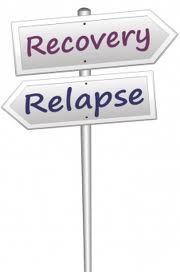Dr.Paula Goel, Pediatrician & Adolescent Specialist
For every family that has a child with an eating disorder is a nightmare. The following are some helpful tips for preserving and protecting your child’s recovery throughout life:

Understand the triggers: Unique thoughts or experiences are frequently associated with impulses to re-engage in eating disorder behaviors. By practicing healthier coping strategies and understanding what these causes are will help them better to avoid recurrence.
Build a support system: If at any level, he/she thinks he/she is dealing with thoughts or behaviors of eating disorder, having a daily link with a trusted person who knows their history and background can help to provide the support and accountability they need to sustain the recovery.
Get involved: There are many ways to remain linked to a culture that celebrates healing, such as volunteering, engaging in a support group, or entering a mentoring program with an eating disorder organization. It helps one to practice a tangible way of helping others and themselves in rehabilitation by being active in these groups.
Relapse is not equal to failure: Never allow your self-esteem to sink. It is important to make them know that this does not mean that they have failed to recover. Relapse is often a part of recovery and this does not mean their efforts are void.
Stop shame and isolation: Intensive feelings of guilt are not unusual for teenagers who experience eating disorders. A dangerous and damaging slippery slope can be the combination of not being able to regulate or avoid an eating disorder, recognizing the damage it can cause loved ones and themselves, but also coping with the shame of “betraying” their own food laws.
Prevent depression and anxiety: In those who suffer from eating disorders, both are highly prevalent and interdependent. Malnutrition not only affects how we feel, how we control moods, and how capable we feel, but it also creates isolation that is especially difficult to break out of without social help. It is imperative that those who are struggling do not shut themselves away so they can receive advice and treatment as soon as possible.










